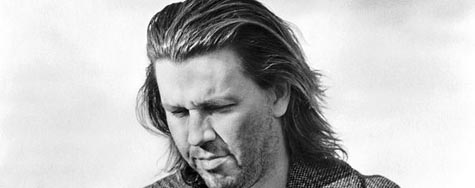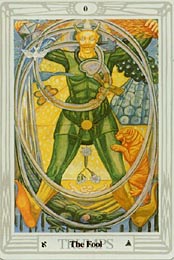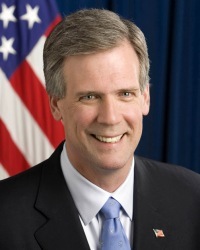God of Loss & Grace
 The Anchoress tells of receiving heartbreaking news: the prospect of losing her hearing:
The Anchoress tells of receiving heartbreaking news: the prospect of losing her hearing:Yesterday morning, though, came a straw I have dreaded my whole life, and I finally drew it: the “you are losing your hearing” straw…The pain of such a loss is real, and it is deep — it can neither be trivialized nor ignored. Some will deaden the pain by drink, others by denial or depression, or one of a host of other means whereby we mitigate the pain while refusing to embrace it.
The loss was discovered, of course, due to that dismal ear infection of the past two weeks, but the hearing in that afflicted ear is only slightly worse than the other. Upon reading my test results the doctor asked if I had worked around airplanes for the past 20 years, or if I had fronted a rock band. “Severe degeneration! hearing aids!”
We live with sense of entitlement: we should be free of pain and suffering. For most, such dire news—particularly about health and well-being—is a devastating blow, devoid of meaning and justice, a cruel trick of fate, perhaps, or some sort of karmic retribution for evil done in this life or one prior. It is at best random misfortune, at worst a cruel robbery, a brutal injustice. There is no making sense of it —it is without reason or purpose.
Yet for the Christian, things are supposed to be different. We serve&as an article of faith—a God of love, and when one has committed their life to such service, the reward of such a severe trial raises a host of uncomfortable questions: Is God unfair? Is this punishment for sin? Is He capricious, toying with me, playing me for the fool, demanding my obedience then rewarding me with pain and loss?
The Anchoress responds as many would — with rage:
“I drove home pounding the steering wheel and telling God I thought He was pretty damned unfair, after all. I demanded that He listen to me and make me a sensible answer about why things were going as they were, why at only 46 years of age I was increasingly debilitated, increasingly arthritic, increasingly feeling like a 65 year old.Anger at God — a frightening, even terrifying thought. At worst it presents images of lightning strikes, fire and brimstone, judgment, destruction. Better to pretend you’re not angry, hide it from God lest He send another, more awful plague in retribution.
It’s not enough that I must sometimes use a cane, or that I wear glasses, not enough that I am constantly bruised, often fatigued into stupidity and inarticulate, stammering aphasia, not enough that my body is scarred all over and that my skin is under siege simply because I am Irish! now I am going to need hearing aids? Now I am going to be deaf? What has my husband ever done to you, that you need to inflict this sort of wife upon him?
Oh, I howled. I ranted.
And it was so out of character for me to do so – this has not been my way, to shake an angry fist at God and make demands. I didn’t like doing it – it felt so wrong. So wrong, not to simply be thankful for my blessings – for all the good things, and all the “not too bad” things.
But I was so angry.
Yet anger is the entirely correct response — it is so real, so honest. This is what happens in relationships — hurt, misunderstanding, confusion, mistrust. If your God is a remote concept, an idea of immaterial power, lording it over your life from a detached place far above in the heavens, then fear of angering the unknown deity is perhaps worthy of some caution. But the Christian professes, lives, experiences relationship with God — a two-way street, not between equals, but intimate and personal, and decidedly real. Not that we know God — I have always viewed those who talk of knowing God with some suspicion, judging (perhaps unjustly) that their God is entirely too small. God knows me intimately; I know Him hardly at all, and undoubtedly far less well than I think I do. And it is this unequal relational knowledge which breeds anger and mistrust. But God has broad shoulders: He can take a punch, and has taken many. And in some illogical way, to be angry with God is to know Him — if only in small measure — better.
But we are sentient beings, and our minds demand to know why — why the pain, why the loss, why the senselessness of it all? Whatever purpose could God have in such a wrong? And, yes, Christians — the folks with the fast track to God, supposedly — get the answers wrong all the time. Is it punishment for sin? Not if the cross has any purpose, or the gospel of God’s grace any truth. Is it a discipline of God, to correct errant behavior? Perhaps slightly closer, but still far off base, as our deduction of the error being corrected is almost invariably wrong, and our knowledge of the correct path even poorer. Is God angry, vengeful, petulant, capricious, inattentive? If He is, then there is no truth to His purported revelation, no meaning to a crucified prophet, no hope of forgiveness, no future worth living for. Or that most vile and repugnant of answers, heard so often from too-rich shysters on TV church: you will be healed — if only your faith is strong enough.
The real answer is simple but not satisfying: God is good; pain and loss, evil and meaningless — and grace bridges and heals that hopeless incongruity which demands explanation and finds none.
Many years ago, as a very young Christian, filled with intellectual arrogance, baseless self-confidence, and the fading embers of a newfound faith, I discovered God on a most terrifying and unplanned journey. I was a legend in my own mind: hot-shot intern, selected above my peers for a prized specialty residency, smart, handsome, talented, affable — and of course, immensely humble. I knew all the Bible answers, memorized Scripture, had God figured out. I was passionate about medicine, and perhaps even more so about music, having written and arranged for a fusion band with whom I played guitar. Creativity was my gig, but since time for music was short, I turned my interest to woodworking, having long admired furniture craftsmen who graced hardwood trees into elegant expressions of functional beauty.
Though my experience was woefully lacking, I charged into a wood shop full of power tools, my native intelligence rapidly absorbing their workings and their potential to transform wood into beauty. Soon I was cutting and shaping like the old pros — even occasionally asking their advice on hopelessly advanced cuts and techniques — like the blind dado cut.
A dado blade is a whirling chisel, a specialized blade for a table saw designed to cut precision grooves for furniture joints. A blind dado is a cut where the resulting groove does not run to the end of the board — a difficult and dangerous cut for even the best of woodworkers. After cursory attention to the shop instructor’s advice and caution — “hold onto that board, it tends to buck” — I charged ahead, dropping a gorgeous piece of 2 inch square mahogany onto the whining scream of the blindingly-fast steel saw. The sound, smell and feel of a table saw on hardwood is like little else — almost intoxicating, the glorious union of power and precision.
In an instant, my euphoria turned to stunned surprise, as the hardwood board became a missile, soaring across the room to an enormously loud and ungraceful landing. How embarrassing — everyone would be looking at me, wondering who that idiot was. The pain was annoying — not much more than hitting your thumb with a hammer. I shook my left hand, as one would a bruise, reflexively muttered “Shit!” — then glanced down at it: it was no longer recognizable as a human appendage. White, red, mangled, grotesque — a horror beyond imagining.
The next few minutes were a blur: people shouting, talk of a “bad injury”, a hurried ambulance call, and evidently some assistance as I was guided to the floor in a near-faint. No pain — that would come later. Fear — a growing, gnawing fear without form or source — began to rise. I was a surgical resident — what would this mean for my future? What comes next? Then the moment of true terror: my music! My guitar! I knew — then and there, with a clarity hard to describe — that this passion of my life was lost, forever lost.
The pain of this realization was almost unimaginable, far exceeding anything physical. But then, a most peculiar thing happened — from nowhere, a prayer arose: “Lord, thank you for what just happened.”
Totally illogical, fully irrational, unexpected, unplanned, unwanted, even — to this day I do not know from where this thought arose. But I know it was not from some deep well of spiritual waters: my cistern was broken physically and empty spiritually. Yet there was sudden peace: the fear had vanished. Somehow I knew it would be alright. Had I truly known what the future held, I would not have been so sanguine.
The following months were hell — the hand has more sensory nerves than any other body part, and each one screamed as antiseptic cleaned the wounds, fingers stretched for x-rays, steel pins were placed and removed, stitches dug out, painful rehab initiated. Several surgeries awaited me, each more awful than the last, as bones were broken and realigned, tendons stretched, limited movement regained at extraordinary cost. Whatever fantasy I entertained of regaining function sufficient to play guitar faded with each passing week.
But this was only the start: the rigors of surgical residency were compounded by the widely-held perception that I was no longer up to the task; by surgical missteps and poor decisions, engendered by a still-shocked mind unable to focus; by a father near death with a post-surgical stroke and a career in dire jeopardy. Healing fractures caused agony for months after the injury, whether assisting at surgery or storing the groceries. Depression compounded the pain, as I grasped desperately to the slender thread my once-hopeful life had become. Whipsawing between pink-cloud optimism and deep blue despondency made sane living all but impossible.
I’d love to tell you how my faith grew strong with a song in my heart, like those saccharine storybook endings in Christian magazines, but it was not so. My faith grew, to be sure: your muscles grow hard whether pumping iron in an uptown gym or stroking an oar in chains to the cadence of a galley master’s hammer. It sustained me through difficult times in my marriage, through the loss of a house to fire, through illness personal and family. I held onto God because I had nothing else; He held onto me like a fragile and broken treasure as he caressed and gently restored. But faith failed me often — or more accurately, I failed faith. Like a weight lifter’s training, the goal is failure — and I met that goal repeatedly — gloriously, even — in ways small and spectacular. I would recoil in terror at the journey again, were it offered in some instant replay, knowing what I now know — but I would not trade the outcome for all the treasure on earth.
There is no answer to the question why? in the walk of faith. It is a foolish question — we could not understand the answer were it given, and to know why would destroy the how, and the when, and the for which purpose. The answer is unfathomable. To know why? is to be God — and despite my aspirations, I don’t have the resume for the job.
Life is more than eyesight, or hearing, or senses, or health, or functioning hands. We treasure those things, but we are more than our bodies, more than our senses, more even than our minds and spirits. We are exquisite blocks of wood, formless with sharp edges and splinters, until God — in His wisdom, gentleness, and perfect timing — gouges deep furroughs and light shavings, chisels and sands, as we begin to form in His vision — not ours — the perfect work of art, a reflection in some small way of the Craftsman’s mind, His Spirit, His beauty, His greatness.
I will pray for the Anchoress — that her trial may be light, and hopefully fleeting, that her spirit be strong and her faith sufficient. I would not wish her trials on another, but each life’s sojourn is unique, a custom job not meant for others. But her God is faithful, and His greatness reflected in the brokenness of her life. May it be as well for me.
 In the past several days, through the lens of my profession, I have been given a rather stark and disturbing vision of our current cultural revolution. It is, it seems, a revolution every bit as pervasive and transformational — and destructive — as China’s Cultural Revolution of the 60s — and indeed may be but a different manifestation of a global transformation which transpired in those very same decades in the West. Ideas have consequences, as they say, and we are watching them bear fruit before our very eyes in a slow-motion train wreck which seems now to be accelerating at a disturbing rate.
In the past several days, through the lens of my profession, I have been given a rather stark and disturbing vision of our current cultural revolution. It is, it seems, a revolution every bit as pervasive and transformational — and destructive — as China’s Cultural Revolution of the 60s — and indeed may be but a different manifestation of a global transformation which transpired in those very same decades in the West. Ideas have consequences, as they say, and we are watching them bear fruit before our very eyes in a slow-motion train wreck which seems now to be accelerating at a disturbing rate.

 A recent post on the worldview of contemporary postmodern liberalism was kindly linked by Gerard Vanderleun over at
A recent post on the worldview of contemporary postmodern liberalism was kindly linked by Gerard Vanderleun over at  Donald Sensing has a
Donald Sensing has a 